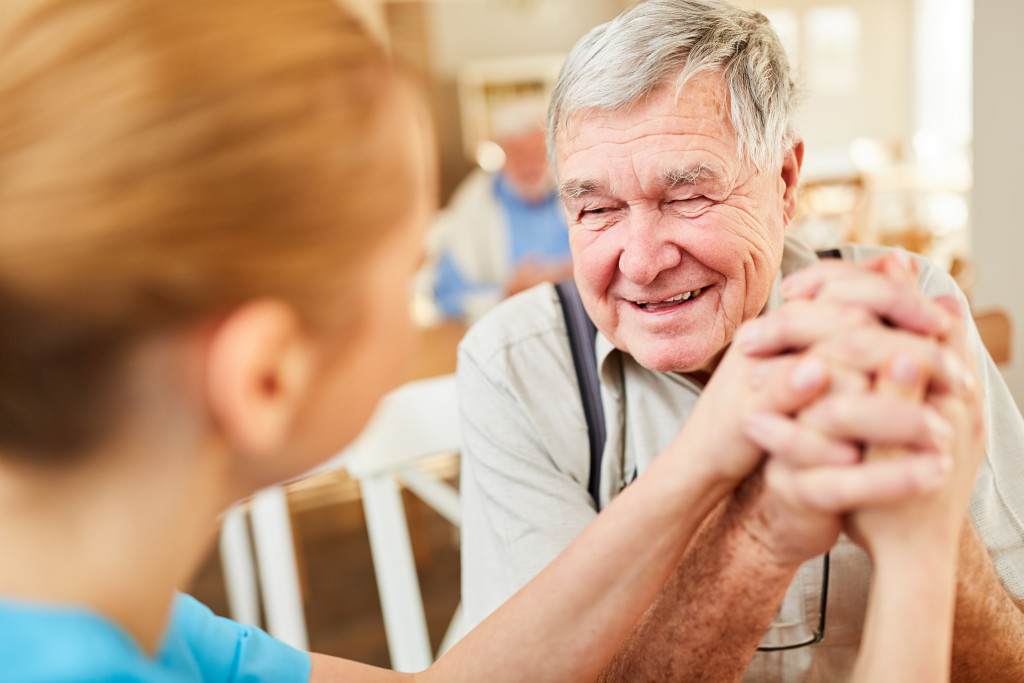As a senior, lifestyle changes are inevitable. Seniors need to make adjustments to their lifestyle so that they can live their best lives. It can be hard to keep up with the changes that come with aging. Therefore, they need to find a way to feel comfortable even if their age is taking a toll on their lives.
Seniors need to make specific changes to help them live comfortably despite the consequences of old age. For example, they may need to find a doctor or pharmacist that is more knowledgeable about senior needs and adjustments for lifestyle changes. In addition, they also need to plan for what will happen in the future.
For example, seniors can embark on making a last will to ensure their assets are divided fairly. They can also look into purchasing long-term care insurance to help them in an emergency such as a serious illness or injury. They can also look into funeral plans so that family members no longer have to worry about dealing with these things. In the end, they should be prepared.
Lifestyle Changes for Seniors
Below are examples of lifestyle changes for the older generations:
-
Seniors need to adjust their lifestyles to accommodate significant changes.
Seniors are not as active as they once were and need to be more mindful of the distances they walk or drive. They move at a slower pace because their lives are not as physically demanding as they once were. They will need to take more breaks throughout the day and may find it difficult to walk up and down steps without assistance.
In addition to this, seniors can no longer rush around and do most things on their own because they no longer have the strength, energy, and endurance to do so. Therefore, they need to move more slowly and accept that their lives are not the same as before.
-
They need to change their lifestyle to accommodate a less active lifestyle.
The first thing seniors may want to do is take it easy on themselves and not overdo anything because they now live with reduced strength, energy, endurance, balance, agility, coordination, and flexibility. It’s also easier for them to get too stressed, so they need to learn how to relax, too.
They should focus on being as healthy and active as they can. They need to maintain a lifestyle that includes exercise, relaxation, socialization, mental stimulation, good nutrition, and adequate rest. This will help them live well with reduced activity levels.

-
An older adult’s lifestyle changes can include a change in eating habits.
As people age, their digestive system slows down. That means that the elderly have, at times, weaker stomach acids or lack of appetite. Therefore, they need to have particular diets to ensure that they get all the nutrients they need.
-
An elderly’s lifestyle changes can include a change in social interaction.
Socialization is important for seniors because it helps them stay mentally engaged and gives them new experiences with people who have similar interests. Socializing allows them to keep their brains active and exercise their interaction skills even during old age.
-
They need to recognize signs of depression and other disorders to get the help they need.
Most seniors are at a higher risk for depression than the general population because of lifestyle changes, chronic health conditions, and social isolation.
In addition to this, they are more likely to suffer from health complications due to old age. Therefore, they need to access medical facilities easily, have a lifestyle that allows them to be active enough, and maintain their independence as much as possible.
-
Older adults need to make sure that they take care of their mental health.
Mental fitness should be an important part of any senior’s lifestyle. This is because mental fitness can help them stay happy, adapt to lifestyle changes and challenges, maintain independence for a longer period, and make the most out of life. Seniors can enhance their mental health by engaging in relaxing activities such as meditation, reading a book, or listening to music.
Adjusting to a New Phase in Life
Seniors may find it difficult to adjust to a new phase because lifestyle changes can become too demanding. For example, they need to accept that they are no longer as active and energetic as they once were. Therefore, they need to find lifestyle changes that are more suitable for them.
This way, elderly people can maintain independence for a longer period and make the most out of life. They also need to consider preparing for the future. They can take care of everything from managing their assets to deciding what will happen to them once the time comes to say goodbye.

